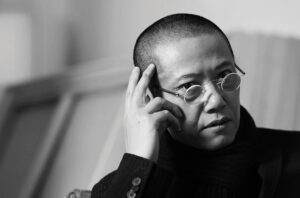陈丹青,1953年生于上海,1978年考入中央美术学院油画系文革后首届研究生班,1980年毕业后留校任教,留任油画系第一工作室。 早在1980年,陈丹青便以油画《西藏组画》蜚声海内外,成为中国油画界的巅峰人物,甚至直至今日,油画圈仍存在着「陈丹青情结」。 1982年,陈丹青以自由画家身份移居纽约;1983年6月,陈丹青的个人画展成为中国当代画家在美国举办的第一个个展,之后,他在美国取得了属于一个艺术家应该有的几乎所有成就 ;2000-2004年回国期间作为清华大学特聘教授之一,任清华大学美术学院教授、博士生导师,同时主持「陈丹青工作室」的工作。
陈丹青具有较强的造型能力,画风细腻,感情真挚,思维敏锐,有着一种稳定和深沈的力量。 人道情感和人格力量是陈丹青艺术中主要的艺术底蕴,这是他本人情感品格的自然体现,浸透了他的自身经历,包含着他对底层人民的深切理解、怜悯和尊重。 这种人道情感和人格力量赋予他的作品以辉煌和崇高的意义。
陈丹青有着现在很多知识分子已经不具备的人道情感和人格力量,敢于对现实提出质疑,对很多社会事件有着知识分子本该有的冷静思考和犀利批判,被推崇为「影响中国的五十位公共知识分子」、「2005年度中国十大精英男士」、「 大时代锐仕」等。
Chen Danqing (b. 1953) is an American-Chinese painter known for his realist depictions of nudes and rugged landscapes. Influenced by the paintings of Jean-François Millet, Chen empathetically portrayed Tibetan farmers and herdsman, drawing criticism from the Communist regime during the 1980s.
Born on August 11, 1953 in Shanghai, China, he created propaganda art as teenager depicting the feats of Mao Zedong. Chen went on to enroll at the Central Academy of Fine Arts in Beijing. In 1982, the artist immigrated to the United States, where he spent the next 18 years writing and painting in New York. During his time in New York, Chen befriended fellow artist and activist Ai Weiwei. In 2000, he returned to China, and became an outspoken critic against the state. Ai and Chen published the book Interviews Not About Art in 2007.
With the long lost humanity and strong personality, Chen Danqing, unlike many contemporary Chinese intellects, dares to question the social reality, and reflects and criticizes many social events with a senesce of detachment that should have been possessed by an intellect. He is awarded the prizes for “The Fifty Public Intellectuals Who Have Influenced China”, “2005 Top Ten Male Elites in China”, “Elites of the Era”, etc..


